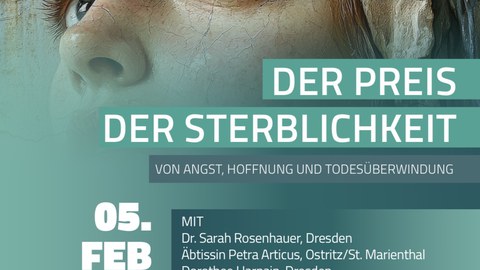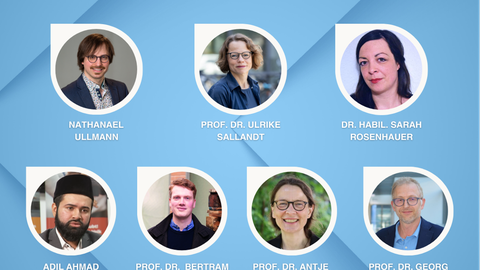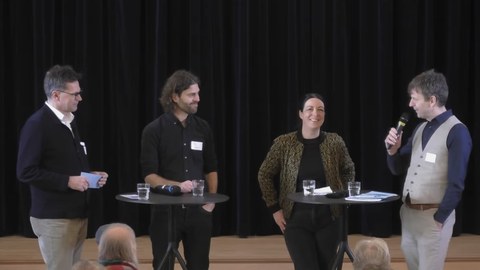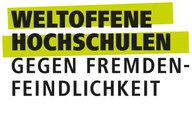 © Pixabay
© Pixabay
Chair of Systematic Theology (Catholic)
Chair of Systematic Theology (Catholic)
What is systematic theology?
At the center of Systematic Theology is the critical reflection of the Christian discourse on God. Systematic theology reflects the content of Catholic doctrine of faith and social teaching in the context of contemporary societies and their social, political and spiritual challenges. The aim of this theological sub-discipline is to rationally justify the convictions of Christian faith, to understand them more deeply under the conditions of the present and to provide critical and creative impulses for shaping contemporary social life. To this end, systematic theology engages in interdisciplinary dialog with other religions, non-religious world concepts, the natural and social sciences, among others.
Systematic theology at TU Dresden focuses on "classical" dogmatic topics (doctrine of creation, doctrine of God, Christology, eschatology, doctrine of the sacraments) as well as issues relating to the philosophy of religion, environmental ethics and moral theology. One focus of the Chair is on the question of a just coexistence not only of humans, but of living beings as a whole, the theological answers to which are currently being strongly debated in the field of human-animal studies, among others.
The sources that Systematic Theology deals with include Holy Scripture, church history and church documents as well as statements by theologians from various theological schools, texts by mystics and literary, artistic and cultural forms of expression.
The Chair's courses link the teaching-learning formats and content with future professional fields in schools, research and society and demonstrate the relevance of theology in these fields. Guest speakers and excursions complement and enrich the courses on offer.
The self-image of the Chair of Systematic Theology in Dresden
"Together we create" - this slogan is the program for the Chair of Systematic Theology at the Institute of Catholic Theology at TU Dresden. As a Chair team, we allow ourselves to be challenged by current social issues, positions and situations on the one hand, and contribute thought-provoking ideas to science and society on the other. Our goal of a rationally responsible discourse on God presupposes the presence of God in all aspects of life, traces these, questions them and attempts to reflect, articulate and depict the unspeakable and barely representable. As academics, we are constantly aware of this tension and the provisional nature of our positions and statements.
In particular, we develop forms of theology that question existing positions and boundaries - such as the boundaries between human and animal life in the Anthropocene, the position of humans in ecological coexistence, hierarchies of the living. These connections are impressively revealed in protest cultures, resistant practices and consciously evoked changes of perspective. We encounter such "borderline discourses" in all "classical" systematic theological subject areas, in dialog with other religions and spiritual approaches to the world as well as in interdisciplinary research.
Our research is not only located in the ecumenical and interdisciplinary cooperation of the various subjects at TU Dresden (e.g. PRISMA) and in international research networks (focus: USA, Austria, Belgium), but also consciously seeks a regional reference time and again. The city of Dresden and eastern Germany thus come into view as places of theology. Cooperation with non-university institutions (such as the Catholic Academy of the Diocese of Dresden-Meißen, the Deutsches Hygiene-Museum Dresden, church locations, etc.) enables us to link our research to theological practice as well as to concrete places of social life and activity.
In keeping with the diversity of the subject areas, different scientific methods are used: hermeneutic, pragmatic, discourse and performance analytical and critical approaches, scientific logics of deduction/induction/abduction, participant observation, etc.
For us, "Together we create" not only means that we act as a team in research, teaching, science communication and university self-administration and shape these areas together, but also that we see ourselves as part of a lively and co-creative network in which it is constantly important not to act at the expense of the other members of the network, but to act together with them.
Our core research areas in brief:
- Animal theology; theological human-animal studies (an international, interdisciplinary research network is currently being established)
- animal rights
- Theologies of creation
- Theology & sustainability
- Ecocide and the Anthropocene
- Sexism, racism, speciesism (Unity of Oppression)
- Critical theologies
- Ecclesiology
Further focal points:
- Process theologies, relational theologies
- Guilt and sin (in) the church
- Gender studies, feminism, theology & gender
- Intercultural, post- and decolonial theologies
Further information on the research of individual team members:
- Prof. Dr. Julia Enxing: www.juliaenxing.de
- Philipp Räubig: https://tu-dresden.de/gsw/phil/ikt/systematik/die-professur/beschaeftigte




